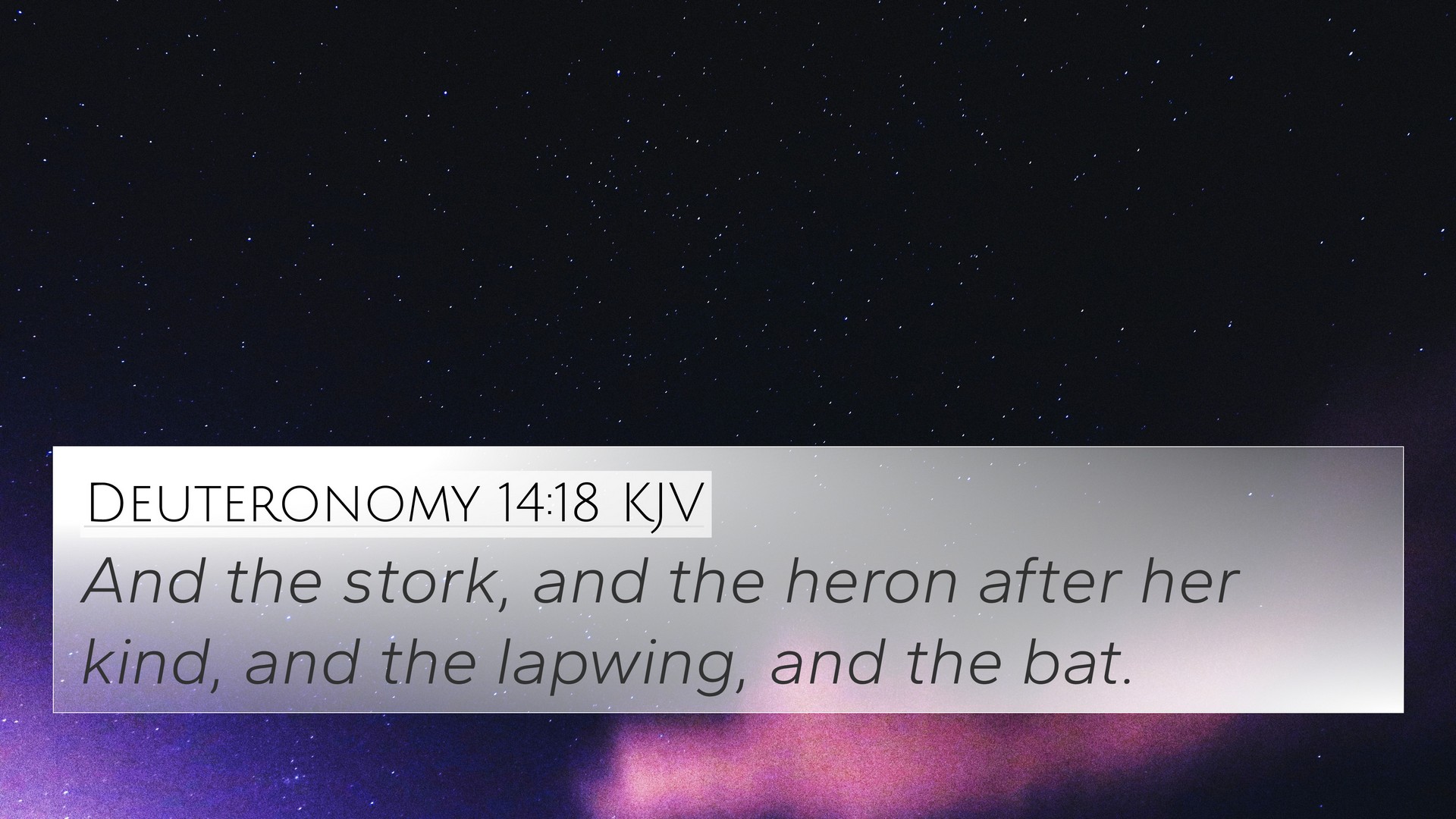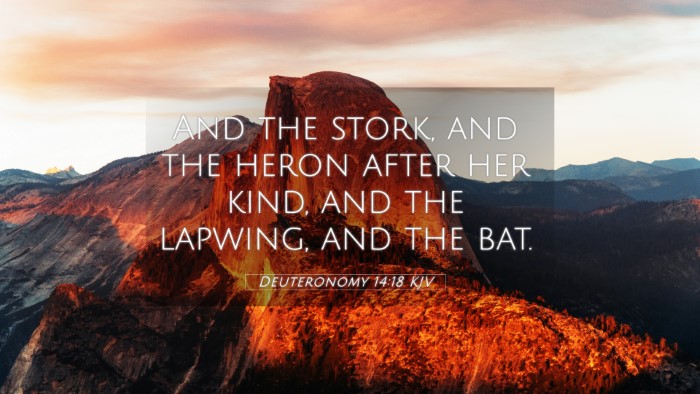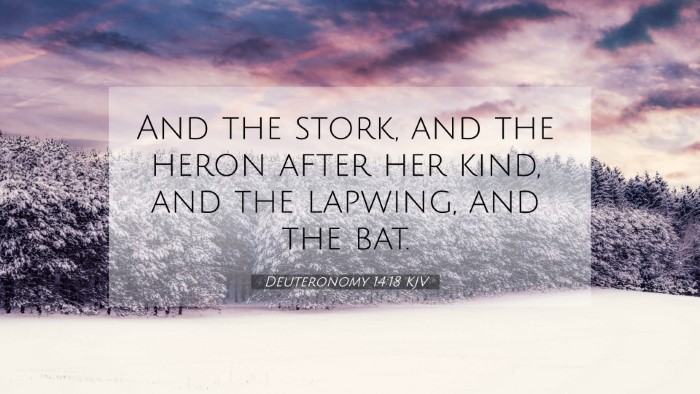Deuteronomy 14:18 - Meaning and Interpretation
Verse: "But the swan, and the pelican, and the gier eagle, and the kite after his kind." (Deuteronomy 14:18)
Summary of Meaning
Deuteronomy 14:18 introduces a list of unclean animals as part of God’s dietary laws for the Israelites. This verse is part of a broader context in which the Lord dictates what can and cannot be consumed, emphasizing the importance of holiness and separation from pagan practices. Understanding this verse involves both its immediate implications regarding dietary restrictions and its broader theological significance concerning purity and covenantal identity.
Commentary Insights
-
Matthew Henry:
Henry explains that this verse marks the distinction between clean and unclean animals, which serves not only practical purposes but also symbolizes the need for the Israelites to maintain a holy lifestyle. He emphasizes that the list of prohibited animals is meant to deter the people from following the customs of surrounding nations.
-
Albert Barnes:
Barnes focuses on the specific animals mentioned in this verse. He notes that these creatures represent those that do not fit the usual classifications of clean animals, meant for consumption. He suggests that understanding these distinctions can help one see the underlying principle of obeying divine laws for spiritual and practical benefits.
-
Adam Clarke:
Clarke provides an extensive background on the animals listed, detailing their characteristics and why they might be considered unclean. He also articulates the concept of ritual purity in Hebrew culture, linking it to the observance of God’s commandments as a testament to their faithfulness to God.
Theological Implications
This verse illustrates the larger theological theme present in the Pentateuch about God’s holiness and how He desires His people to reflect that holiness through their choices, including what they eat. The dietary restrictions can be seen as a means of establishing identity as a people set apart to God.
Cross-References
This verse is related to several other Bible verses that elucidate the themes of purity and divine instruction:
- Leviticus 11:13-19: Lists additional unclean birds and mammals.
- Isaiah 66:17: Speaks of those who eat unclean animals as a sign of defilement.
- 1 Peter 1:16: "Be ye holy; for I am holy," emphasizes the call for holiness.
- Matthew 15:11: Jesus teaches that what enters the mouth does not defile a person.
- Acts 10:14-15: Peter receives a vision questioning the dietary laws, illustrating a shift in understanding.
- Galatians 5:1: Encourages believers to stand firm in their freedom, indicating the shift from Old Testament law to New Testament grace.
- Romans 14:14: Affirms the idea that no food is inherently unclean, pointing to a new understanding in Christ.
Connections Between Bible Verses
Understanding Deuteronomy 14:18 requires an exploration of its connections with other verses. For instance, the dietary laws serve as a background for New Testament teachings that expand on the understanding of cleanliness and moral purity. This connection showcases the transition from Old Covenant practices to the New Covenant, wherein Jesus fulfills and transforms the meaning behind God's commandments.
Analytical Insights and Themes
By engaging in comparative Bible verse analysis, one can see the broader implications of what it means to be a holy people. Through cross-referencing other sections, such as the teachings of Jesus and the apostolic instructions, Bible study students can gain a comprehensive understanding of how these themes of holiness and purity apply today. It leads to reflective questions: How do the dietary restrictions reflect our spiritual lives, and how can we maintain purity in our own contexts?
Tools for Cross-Referencing
For those seeking to delve deeper, various tools for Bible cross-referencing can aid in this journey:
- Bible concordance
- Bible cross-reference guide
- Cross-reference Bible study tools
- Bible reference resources
Conclusion
Ultimately, Deuteronomy 14:18 serves not just as a dietary guideline but reveals deeper truths about God’s desire for His people to remain distinct and holy. Engaging in scriptural cross-referencing enriches our understanding and emphasizes the continuity of God’s message throughout the scriptures. As believers navigate themes of holiness, dietary law, and spirituality, this verse remains a vital element in understanding the character and expectations of God for His followers.


